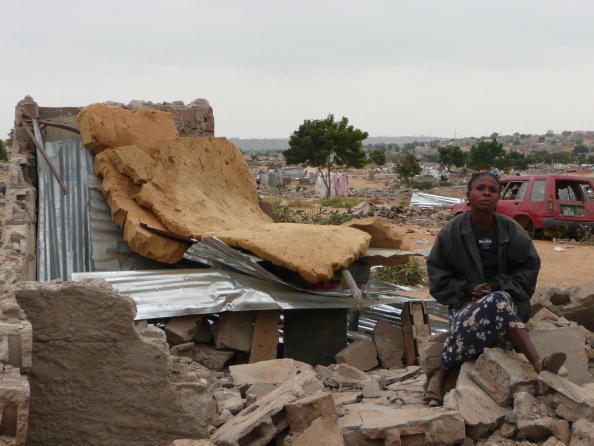
Angola celebrated a milestone when it was revealed in early January as home to Africa’s first female billionaire. While at first this seems like a “You go girl!” moment, the reality is the woman is the daughter of President dos Santos and she had a little help along the way via corruption and nepotism. Less than a month later, Amnesty International learned the government of Angola is once again forcibly evicting citizens in the capital of Luanda. How are these two events related?
There is a severe wealth dichotomy in Angola, where most citizens subsist on $2 dollars a day with limited access to safe housing, running water, electrical services, and adequate healthcare. Conversely, a small percentage of the population is benefitting from the oil and diamond resource boom, accumulating vast personal fortunes. Accompanying this is a demand for luxury housing and high rise office buildings. The government has long engaged in a campaign of violent forcible evictions to make way for these new buildings, destroying the homes of the most vulnerable citizens in the process.
In the past week, thousands of families were removed from their homes by police, military and private security officers, helicopters circling, as some people were beaten and arrested while their housing was demolished. They were left with no shelter or recourse, in direct violation of international law.
While I don’t have contact information so you can congratulate Isabel dos Santos on acquiring her vast personal fortune, I do have a way to allow you to express your concern to the Angolan government over how these families were treated. Send an email to the Minister of Urban Development and Construction at [email protected], stating your concern at the violent removal of these families without provision of adequate alternative accommodation and to stop all further forced evictions not in compliance with international and regional human rights standards, including a resettlement plan.
